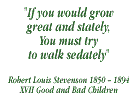What to look for when buying a tent for camping - Part 1
Once you've decided on these basic requirements (ie what class of tent you need and how many people you need to accommodate), there are a few other factors to consider when making your final selection.
Protection from rain/snow/wind
If you're choosing a single-walled tent, check that the fabric incorporates a waterproof and breathable laminate. Double-walled tents should have a waterproof outer shell (flysheet) plus a breathable inner fabric. More expensive models will have additional tensioners for the fly-sheet to improve stability in high winds.
A groundsheet that reaches high enough to protect against ground water (aka a bathtub floor) will be useful in particularly wet weather. Wet/snowy weather use also increases the need for good ventilation via additional peak vents. Use in snow will also require a flysheet that reaches all the way down to the ground plus an additional snow valance.
The tent's ability to withstand water pressure can be measured. In the UK this is based on the Hydrostatic Head and calculated in millimetres (mm). The higher this number the more waterproof is the tent.
The tent's stability in wind is determined largely by its shape - both Tunnels and Domes perform particularly well in this respect.
Tent Weight
Check that the weight given includes everything you need and that the weight is suitable for your intended activity. For example, if you intend backpacking you'll want a good level of protection coupled with a low weight.
Nowadays, this is quite achievable but ultra light weight/high performance tents can be pricey. Weight is usually reduced by changes in design eg fewer openings, fewer poles, smaller flysheets, smaller porches (or vestibules) - so you trade off features for weight.
Capacity
In our experience, manufacturers' estimate of capacity seems to be based on relatively small people lying very close to each other. So do make sure the tent is big enough for you (lying and sitting) and that there is room for all your gear (particularly at night and/or during rainy/windy weather).
Unless you are backpacking it's best to choose a tent with a slightly higher capacity rating than you actually need (ie a three man tent is usually big enough for two people + gear).
For long periods spent in the tent (eg in bad weather) it may also be useful to be able to stand up.
If at all possible, 'experiment' with the tent in the shop before you buy it.
Vents
Vents are important particularly in single walled tents to manage ventilation especially in snowy or wet/humid conditions.




















